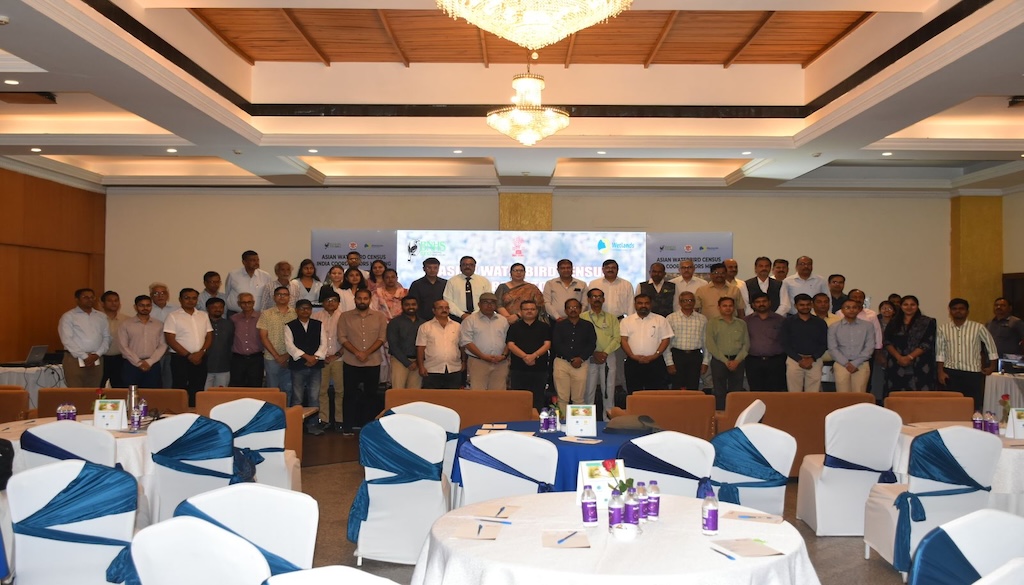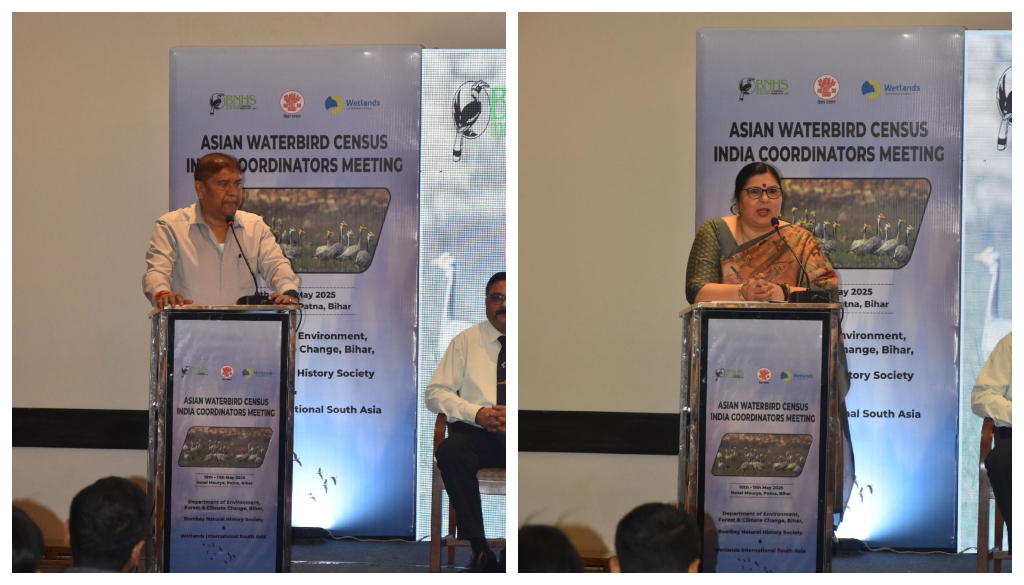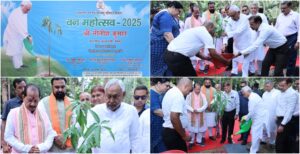
Patna: Coinciding with World Migratory Bird Day, Patna is playing host to the Asian Waterbird Census (AWC) India Coordinators Meeting on Saturday and Sunday, bringing together more than 60 participants from across the country to shape a national roadmap for waterbird and wetland monitoring.
Organised jointly by the Department of Environment, Forest and Climate Change (DEF&CC), Government of Bihar, Bombay Natural History Society (BNHS) and Wetlands International South Asia (WISA), the two-day event in Patna has drawn AWC state coordinators from 14 states, along with forest officers, wetland scientists, and civil society experts. The gathering marks a critical moment to assess the progress of the AWC and strengthen collaborative frameworks across regions.
In his keynote address, Bihar’s Environment Minister Dr Sunil Kumar highlighted the global significance of the AWC, calling it a flagship citizen science initiative that India has supported since 1987. He praised Bihar for conducting synchronised, statewide AWC surveys for five consecutive years, including both pre- and post-migration counts. “This meeting is not just a review of past achievements, but a platform to co-create strategies for the future,” he said. Concluding with a poetic note, he added: “If there is strength in your wings, flight is not far from you; if there is desire in your heart, the sky is not beyond your reach.”

Additional Chief Secretary Harjot Kaur Bamhrah emphasised the importance of institutionalising biodiversity monitoring through participatory and tech-driven approaches. She announced Bihar’s development of a first-of-its-kind Standard Operating Procedure (SOP) for AWC, proposed as a replicable model for other states. She also introduced the Bird Ringing and Monitoring System (BRMS)—a mobile application developed by Bihar’s IT Cell in collaboration with BNHS—that enables real-time data collection and analysis. “We are bridging the gap between science and policy,” she said.
The workshop also addressed key themes such as data standardisation, citizen science engagement, interstate coordination, and long-term institutionalisation of waterbird monitoring. States including Tamil Nadu, West Bengal, Odisha, Kerala, Jharkhand and Jammu & Kashmir shared their experiences and best practices, highlighting challenges and innovations from the ground.
A parallel session spotlighted Bihar’s State Action Plan for Waterbirds and Wetlands. Forest officials and AWC coordinators outlined field-level insights and stressed the need to align scientific monitoring with concrete conservation and policy measures.
Bihar’s leadership and commitment were widely acknowledged throughout the session, reinforcing its emerging role as a model state for biodiversity governance in India.





